- 《LIFE+》Magazine
- 《LIFE+》Magazine Issue List
- Autumn 2022 Issue
- An Idea to Generate Social Impact
-
content 2
-
content 2
-
content 2
-
content 2
-
content 2
-
content 2
-
content 2
-
content 2
-
content 2
-
content 2
-
content 2
-
content 2
-
content 2
-
An Idea to Generate Social Impact
07 November 2022One Sunday spectacle of Hong Kong is the sea of domestic helpers gathering at different public spaces, including parks, flyovers, street corners and staircases. While locals are accustomed to this accepted norm, a group of empathetic students is hoping to bring about a change.
As at April this year, around 332,000 domestic helpers are employed in the city. Without a proper place to go on their rest days, they have to resort to public venues that are often cramped, exposed and unhygienic. This situation concerns five young girls from the DHMC Siu Ming Catholic Secondary School. “We wonder why this is the case. This issue is worth our attention.”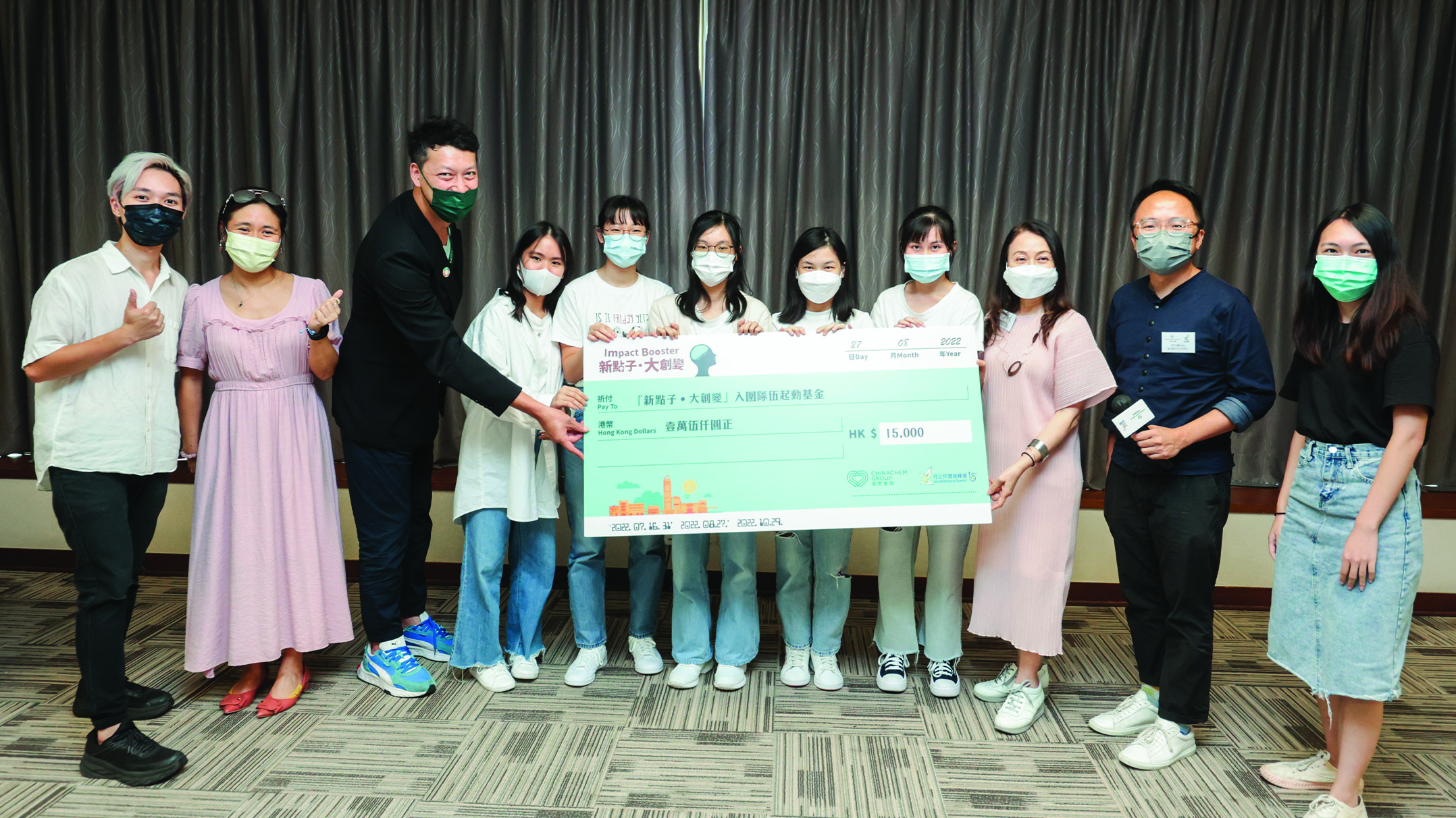 The finalist team from the DHMC Siu Ming Catholic Secondary School
The finalist team from the DHMC Siu Ming Catholic Secondary School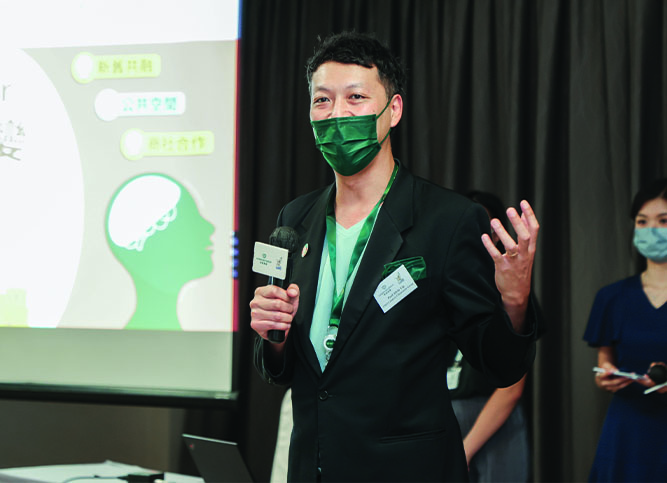 Alvin Yip, Chief Catalyst of Chinachem Group is one of the judges
Alvin Yip, Chief Catalyst of Chinachem Group is one of the judges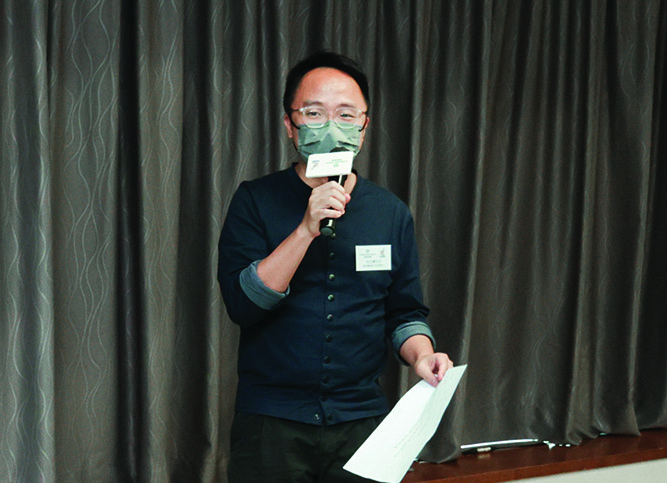 Ar Eric Ho, Neighbourhood Innovation Lab from judging panel
Ar Eric Ho, Neighbourhood Innovation Lab from judging panel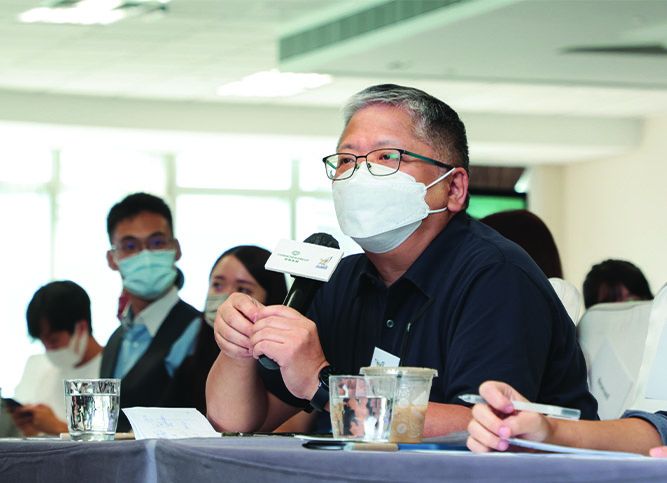 Wan Chong Leong, TW Youth SPOT
Wan Chong Leong, TW Youth SPOT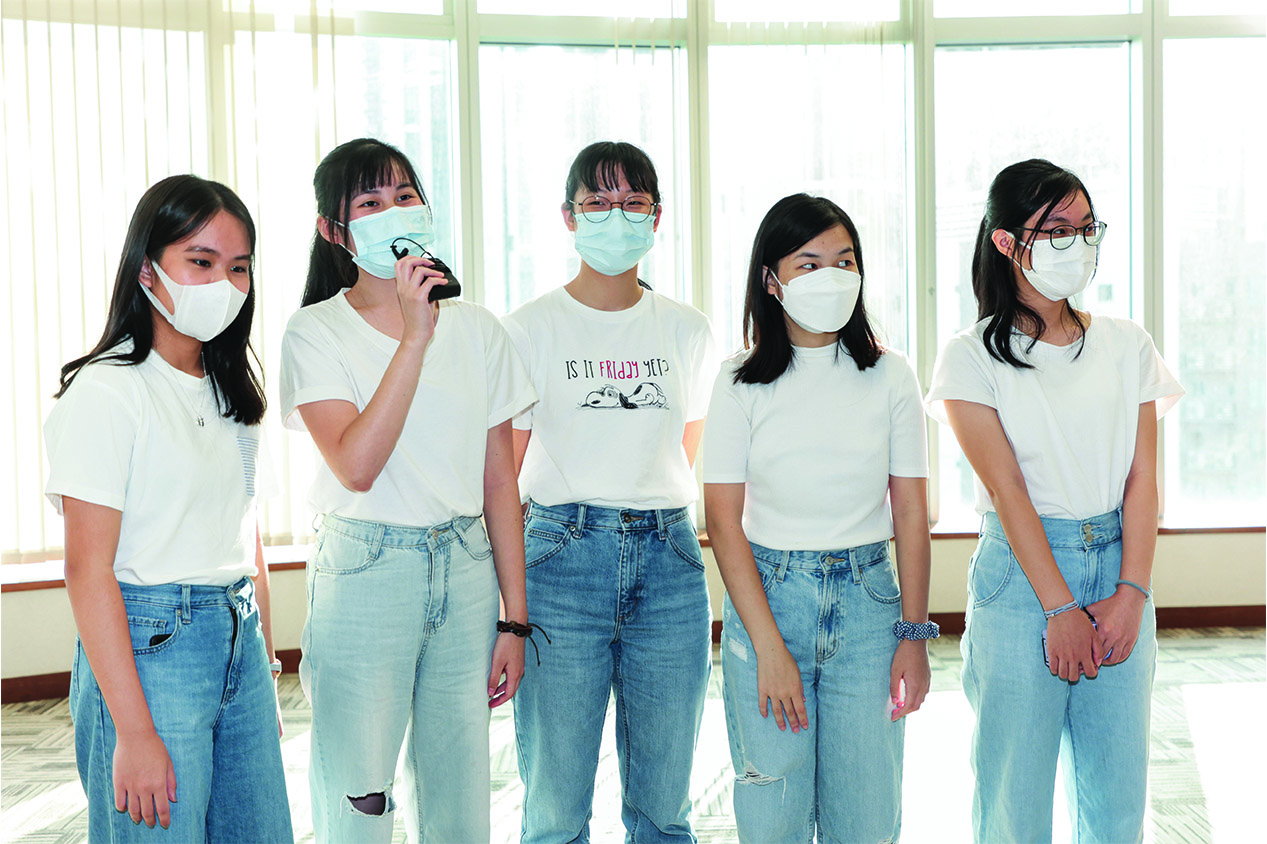 Having studied the use pattern of public spaces in Tsuen Wan, the girls, who call their team Resonance, came up with an innovative idea. “There are some underutilised shopping arcades in the district. Why don’t we work out a win-win solution that can solve two problems at a time? By tapping into these underused premises, minorities often neglected by society will be benefited.”
Having studied the use pattern of public spaces in Tsuen Wan, the girls, who call their team Resonance, came up with an innovative idea. “There are some underutilised shopping arcades in the district. Why don’t we work out a win-win solution that can solve two problems at a time? By tapping into these underused premises, minorities often neglected by society will be benefited.”
Their proposal involves turning vacant shop units, often in small size, into air-conditioned and furnished rooms that helpers can rent at a nominal fee. In addition to a shared pantry, the team plans to bring in hair salons and grocery shops that sell merchandises from the Philippines and Indonesia. From Mondays to Saturdays, these rooms will be leased to members of the public. “This plan not only provides a decent place where domestic helpers can gather, but also helps boost visitor flows in these shopping areas.”Resonance, together with two other finalist teams, has got a head start over 13 participating teams in Impact Booster, a programme co-organised by the Social Enterprise Summit and Chinachem Group that invites secondary students to brainstorm creative solutions for Tsuen Wan and provides the seed money needed to bring the winning ideas to life. “The programme helped us step out of our comfort zone. We used to be very shy, but ultimately managed to interview some domestic helpers on the street (which formed the basis for our proposal). We are glad that we can contribute to a better Tsuen Wan.”
With the awarded resources, the team will test out their idea by creating a mock-up unit at a shopping arcade, alongside a pop-up stall selling products from the Philippines and Indonesia. Comments from helpers and the general public will be collected. Those who tag the team on social media platforms will receive cash coupons for spending at the arcade. By putting their plan into action, these girls not only strive to win first prize in the final, but also look to generate lasting social impact.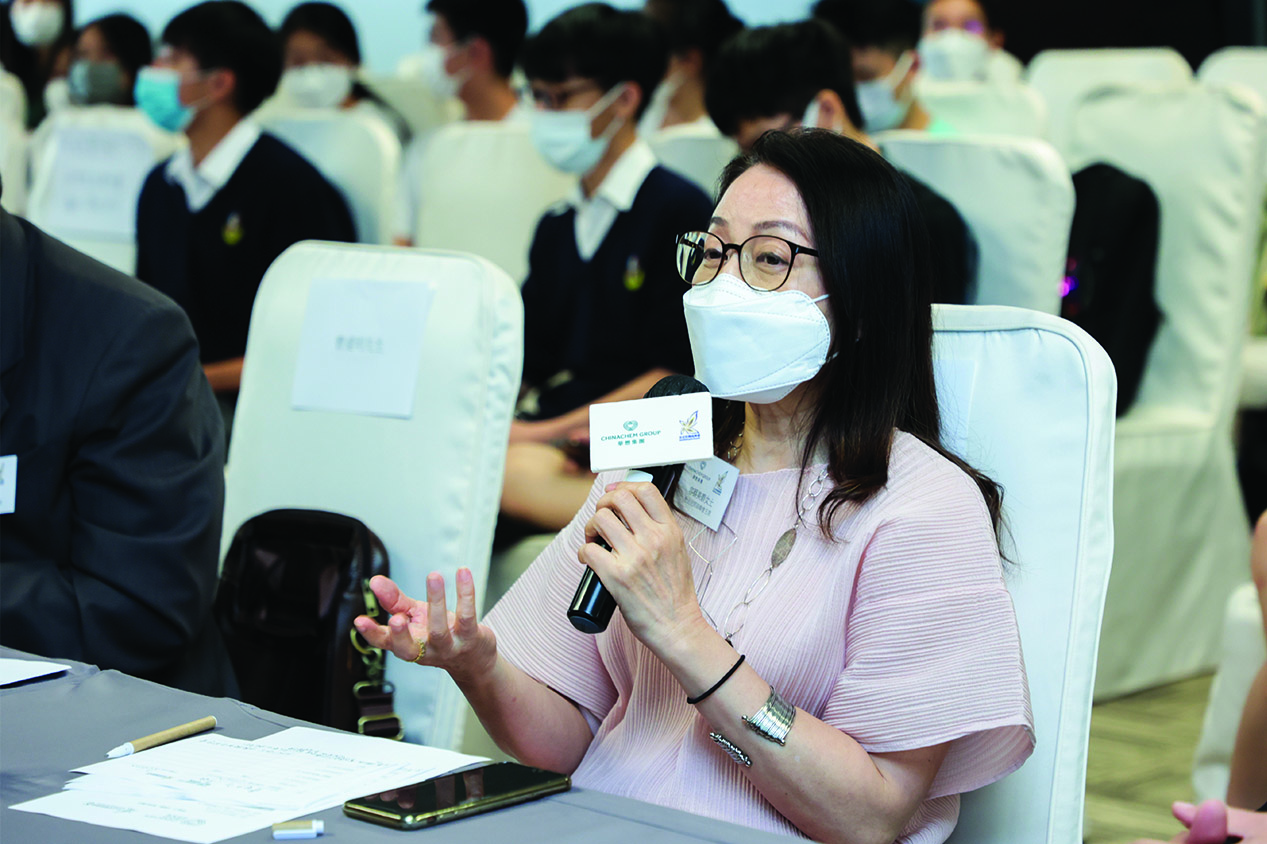
-
content 2
-
content 2
TABLE OF CONTENTS
Page0of0
Stay in Touch with Us
We use cookies to enhance your experience. By continuing your visit, you consent to their use. To
find out more about how we use cookies, please see our privacy policy.